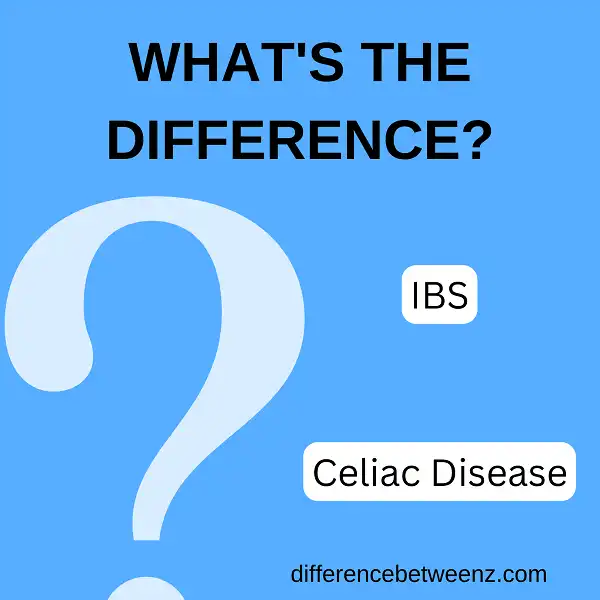Irritable Bowel Syndrome (IBS) and celiac disease are two conditions that often get confused with one another. Though they both have an impact on the digestive system, there is a big difference between the two. In this blog post, we’ll break down the key differences between IBS and celiac disease so that you can better understand each condition.
What is IBS?
IBS, or irritable bowel syndrome, is a chronic condition that affects the digestive system. Symptoms of IBS can include abdominal pain, bloating, gas, diarrhea, and constipation. IBS is often diagnosed after other conditions, such as celiac disease and Crohn’s disease, have been ruled out. There is no cure for IBS, but there are treatments that can help to manage the symptoms. Some people with IBS find that following a special diet or taking medication can help to relieve their symptoms. In severe cases of IBS, surgery may be recommended. IBS is a common condition, affecting up to 20% of the population. If you think you may have IBS, talk to your doctor about treatment options.
What is Celiac Disease?
Celiac disease is a condition that affects the digestive system. People with celiac disease are unable to eat gluten, a protein found in wheat, barley, and rye. When people with celiac disease eat foods containing gluten, their immune system reacts by damaging the lining of the small intestine.
This can lead to problems absorbing nutrients from food, which can lead to weight loss, diarrhea, and fatigue. Celiac disease is diagnosed by a blood test and a biopsy of the small intestine.
Treatment for celiac disease includes following a gluten-free diet. People with celiac disease should avoid foods containing wheat, barley, and rye. They should also avoid products that may contain trace amounts of gluten, such as certain types of pasta and bread. Celiac disease is a serious condition that can be effectively managed by following a gluten-free diet.
Difference between IBS and Celiac Disease
IBS and Celiac Disease are both gastrointestinal disorders that can cause a range of symptoms, including abdominal pain, bloating, diarrhea, and constipation. However, there are some key differences between the two conditions. IBS is a chronic condition that can be managed with diet and lifestyle changes. Celiac Disease, on the other hand, is an autoimmune disorder that can only be treated by avoiding gluten. IBS is also more common than Celiac Disease, affecting up to 15% of the population. Celiac Disease affects about 1% of the population. Finally, IBS symptoms can be triggered by stress, while Celiac Disease symptoms are triggered by exposure to gluten.
Conclusion
Although the symptoms of IBS and celiac disease are often very similar, there is a big difference between the two conditions. Celiac disease is an autoimmune disorder that is triggered by gluten, while IBS is a functional gastrointestinal disorder that has no known cause. If you are experiencing any of the common symptoms of either condition, it’s important to see your doctor for a diagnosis. With proper treatment, both IBS and celiac disease can be managed effectively.


